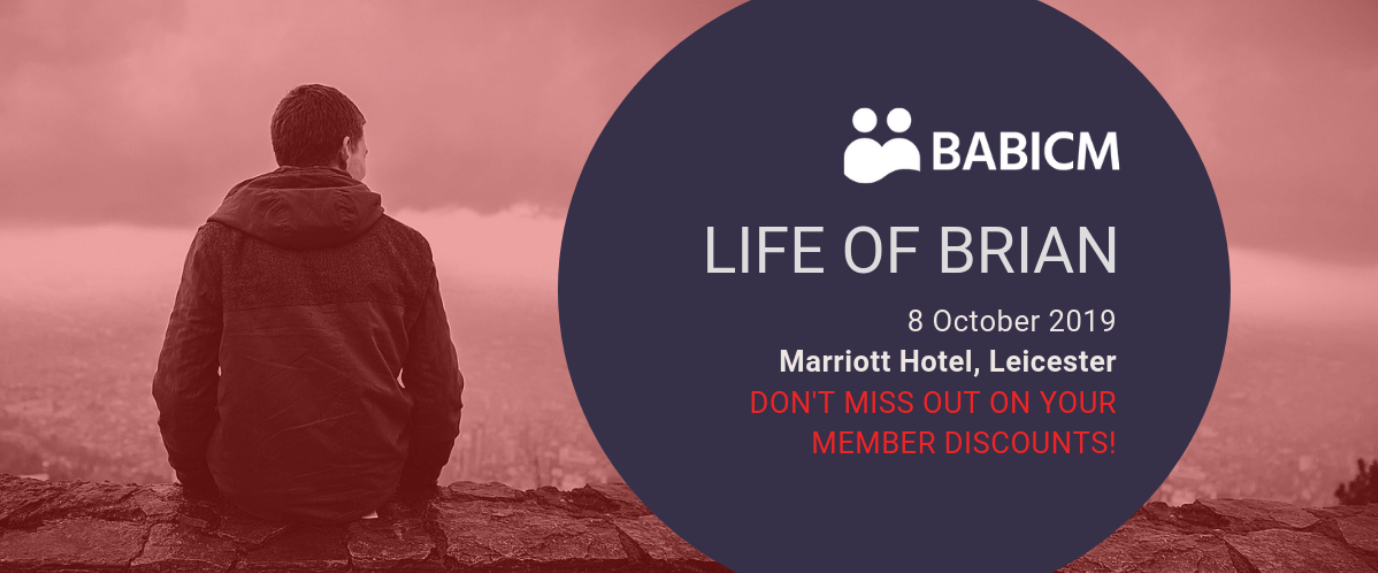connect@social-return.co.uk
0191 375 0256 .
ADELAIDE COURT, BELMONT BUSINESS PARK, DURHAM, DH1 1TW
|
We are at an exciting time in neurorehabilitation - we are discovering more and more about our brain and nervous system and how we can adapt to life-changing injuries by harnessing the potential of technology to push the boundaries of what is currently possible. Our previously unseen electrical and brain activity can be enhanced to enable us to visualise our emotions, communicate when we can’t speak, lift limbs that we have difficulty moving. We can be transported to far off, fantastical lands from the comfort our armchairs by putting on a VR headset, and exercise on a treadmill without being able to walk. This is not just the stuff of Hollywood movies and fantasy novels, but real life that can be seen, touched and used in rehabilitation centres across the world right now… So, how do we ensure that this technology is accessible, appropriate and enables the people using it to achieve their goals and aspirations? How we do prevent exoskeletons from gathering dust in cupboards or the corners of therapy rooms? How do we justify and prove that these technologies make a difference and are worth the investment? Firstly we need to keep in mind who the technology is for. We are adaptable, complex systems that require varied, intensive, targeted opportunities to refine and improve our abilities. We know about “practice makes perfect” – practice needs to be the right amount, in the right place, at the right time… for a purpose and have meaning, not necessarily helping us achieve perfection. One size definitely does not fit all. Secondly we need to coproduce, collaborate, and cooperate to share knowledge and skills – it is essential the end user is part of the team. It is totally possible to repurpose and adapt current technologies that are already in use such as robots and VR games for the rehabilitation market. What works in one setting does not necessarily work in others. It is a great opportunity to design and manufacture technology that is fit for purpose, which can be updated and upgraded and recycled. Thirdly, we will still need therapists and case managers. (You probably think that this is because I am one…”so you would say this wouldn’t you”). Technology is not a magic bullet and will not replace therapists or therapy or the need for case management. It will enable more people to participate in high dose, high quality rehabilitation that is commissioned by case managers and structured by therapists as part of their individual rehabilitation programme. Therapists need to be open-minded and given access to systems and training that enables them to use their clinical reasoning to consider technology as a viable option as part of their treatment plan. Case managers need to keep up to date with innovations and technologies by networking and sharing information so that our clients have the possibility of being able to access neurotechnology now and in the future when this is appropriate. Lastly, technology has the potential to transform the rehabilitation experience of people affected by life changing injuries and our understanding of the brain and nervous system. By trialling available technologies with people who may benefit from them and being able to demonstrate tangible changes in function – enabling people to thrive, not just survive – we have the potential to create a very different future for all of us. If you are curious about neurotechnology and how it could benefit your clients and services, get in touch. I would welcome the opportunity to explore this further and share my experiences with you. 10/6/2020
Introducing the Curious Case ManagerNR Times has launched a new video series which sets case manager Vicki Gilman on a mission to uncover new and exciting approaches, ideas and developments in neuro-rehab. Click Here to find out more and to watch the first interview in the series with Dr Melanie Lee, Clinical Psychologist and Director of Trust Psychology.
We would like to update you from the team here at Social Return in light of the COVID-19 outbreak in the UK, the government and NHS guidance for us all and the additional need to protect those particularly vulnerable.
In relation to our clients we have undertaken risk assessments on an individual basis, including seeking information on the policies and procedures from the individuals and services working with each of our clients. We are mindful of the need for support for some of our clients and families to respond to and cope with the current situation, particularly as it develops and the advice is updated. In terms of client visits, we are evaluating on a case by case basis if there is a need for essential contact in a physical form, inevitably there is often more than one way to achieve the outcome required. This is resulting in less face to face visits, but more in the way of remote contact by text, phone and video calls. Our approach ensures the highest level of safety for our clients, staff and their families and we have the flexibility from skilled experienced individuals to cover any time of sickness or isolation within the team. This ensures that there will be no pause or misstep for clients. We are also able to take on new referrals at this challenging time and work creatively to assess and support clients and families. The Social Return team are working from home - our case managers often do some home working and so we are well set up for this. Timing-wise we were very ready for this in every way, not because we had a crystal ball but because we have been gearing up for expansion over a wider geographical area. We use a range of platforms and resources to ensure we can access tools integral to our way of working, we have a remote system of staff support, supervision, shared information and a bit of virtual office-fun to ensure the team continue to enjoy the challenges their jobs bring and that they feel enabled, supported and part of something. I hope the information here is reassuring and as positive as it can be under the unusual circumstances we find ourselves in as a nation, indeed as a world. I thought I would share with you something that was said in an internal meeting here earlier this week - a team member said, "What we do is to work in many unique challenging situations, supporting people through difficult times and balancing their needs - and this is exactly that." Do please keep in contact with us, all our contact details remain the same and you should expect the same swift responses and creative thinking that you are used to from us. If you have any particular concerns do let us know and don't hesitate to call me personally if I can be of any assistance. With kind wishes and healthy thoughts. 4/9/2019
BABICM: Life of Brian EventThe British Association of Brain Injury Case Managers (BABICM) ‘Life of Brian’ event, will be held on the 8th October in Leicester. This event offers an unmissable 'real-life' scenario, offering step-by-step advice for brain injury and complex care professionals as well as deputies and litigators. Follow Brian on his journey from birth through his teenage years to adulthood and share in his experiences after being born with a brain injury.
BABICM have recently announced the full programme for this exciting event. BABICM members are eligible to access a range of special offers for this event, including the earlybird discount which ends on the 27th September 2019. Resilience is an ability to be successful both personally and professionally, in a high-pressured, fast-paced and continuously changing environment. It’s fair to say that this is a reasonable reflection on the landscape within case management where the environment does indeed change continuously. Although undoubtedly sometimes stressful, the majority of case managers find their work deeply satisfying, despite inevitable emotional burdens of working with clients closely on emotive and difficult subjects. As a team at Social Return Case Management we endeavour to support each other in our working relationships and celebrate the achievements of each other and our clients. Building Resilience as a Resource Case management requires the staff team to individually and collectively be able to draw on all areas of experience to maintain a healthy balanced perspective and sustained energy and stamina in meeting challenging goals. This underpins the success of our clients in achieving their goals along the rehabilitation pathway. Personal Resilience relies upon an ability to demonstrate confidence, adaptability and flexibility. As a company therefore we select staff who have these skills and are also keen to develop themselves further to benefit the team. Part of having personal resilience relies upon also having organisational resilience. This is why Social Return puts a focus upon demonstrating support, trust and mutual respect of business and personal priorities as well as experimenting with new ways of working to better meet business goals and personal needs. A key element of the model of our business which exemplifies this, is working in teams, utilising the skills of assistant case managers, other case managers via peer supervision and the client liaison team. This allows for additional flexibility, sharing the burden and also adding additional skills in to the mix – an example of practical ways the organisation can build integral support to enhance resilience on a personal level. We recognise that the attributes of a good support network within the company are:
Emotional Intelligence Emotional resilience is closely related to emotional intelligence and emotional literacy - the ability to recognise understand and appropriately express our emotions. Emotional intelligence helps our team to manage their own emotional reactions and those of others more effectively, and to recognise the potential impact of their personal emotional states on their problem-solving and decision-making abilities. Goleman (1996) identified the five 'domains' of EQ as:
Emotional intelligence is a skill absolutley necessary for case managers because of the diversity of their work, the multiple stakeholders they have to deal with on daily basis, and the increased potential need for conflict management. Emotionally intelligent managers understand their own behaviour, their strengths and weaknesses. They are calm, in control and are highly attuned to the emotions and feelings of others. They seek to enhance unobtrusively. Subsequently, they make strong connections with people and know how to react in different situations, knowing what to say and do to make others feel better and what it takes to influence or inspire them. Top 5 tips to build resilience:
Introduction As a case manager our role is to advocate for our clients and represent their needs effectively. This in itself can be complex, especially when working with clients who are less able to share their thoughts, for example those in a disorder of consciousness with little or no ability to communicate. In these cases, having an ability to know what the client would want to happen in any of the events life throws at them is crucial. Despite always holding the best interests of the client at heart, the case manager co-ordinates support and intervention, there are many conflicting roles which may get in the way of truly advocating for the client. On these occasions it is necessary to have someone in the MDT whose only role is to represent the client’s voice.
It is sometimes necessary to consider which role might be most suitable to represent the client’s voice. Whilst and IMCA is available to anyone who lacks capacity and is unbefriended (that is, they have no relative or friend that it would be appropriate to consult with about those decisions), an advocate may be more appropriate and a closer look at the roles helps in making that decision. It is unusual that a client would require the services of both an advocate and an IMCA simultaneously. What do IMCA’s and Advocates do?
Role of the IMCA The Mental Capacity Act 2005 introduced the role of the independent mental capacity advocate (IMCA). IMCAs are a legal safeguard for people who lack the capacity to make specific important decisions including making decisions about where they live and about serious medical treatment options. In particular, and IMCA should be instructed where there is a serious exposure to risk, for example:
The IMCA role would be focused on the protective measures being considered and is likely to end when decisions have been made regarding these. Role of the Advocate Like and IMCA, Advocates provide a crucial role in assisting people to express their views and wishes, secure their rights, access information and to be involved in decisions that are being made about them and their situation. This is however a wider reaching role than safeguarding and protection, and can be relevant to many life decisions that a client faces. When a client is unable to share their wishes, an advocate’s role is to collect and represent the person’s prior expressed values and beliefs. Using this information they will then ascertaining proposed courses of action in order to share these with the MDT. Concluding Remarks Our clients benefit from the statutory provision that the IMCA brings but sometimes the role is not far reaching enough in the context the litigation process. There are often complex and ethical decisions to be made with the view of returning the client back to as close as they can be if it were not for the index accident, which are out-with the role of the IMCA. On these occasions a specialist Advocate experienced in working with this client group can be incredibly beneficial for all involved in the MDT. Introduction
As part of the sharing of learning ethos within our training strategy at Social Return, we held an open course on Motivational Interviewing. We were able to welcome Verna Morris, (Brain Injury Specialist OT and Counsellor) and a wide audience of people who work in neurology services in the northern area including nurses, advocates, client liaison officers, therapists and third sector partners. We also enjoyed excellent opportunities for networking and developing relationships in addition to learning, and this has a beneficial effect for our clients as they travel along their rehabilitation pathway. What is Motivational Interviewing? Motivational Interviewing seeks to facilitate and engage the client’s intrinsic motivation in order to elicit change behaviour. The use of goals is key to the process, helping clients to explore and resolve ambivalence. The examination and resolution of ambivalence is a central purpose, and the counsellor is intentionally directive in pursuing this goal. Key Concepts Acceptance of the fact that clients approach therapy at different levels of readiness to change their behaviour in key. In order for a therapist to be successful at motivational interviewing, four basic interaction skills should first be established. These skills include:
These skills are used strategically, to increase the client's awareness of the potential problems caused, consequences experienced, and risks faced as a result of the behaviour in question. Conclusion The course gave an excellent opportunity to understand why we act the way we do when working with clients, and to explore the spirit of MI in order to underpin learning of the 4 processes of MI. The concept of Motivational Interviewing is such a vast one and the tools provided in the teaching sessions were excellent – and put to use the very next day by our case managers wishing to enhance engagement. Practising use of the tools was valuable in the safe environment created within the group, enabling discussion and support. Delegates were able to take away skills, resources and a well put together booklet to use as a tool to develop and reflect on their practise. The feedback received was resoundingly positive and this is a direct reflection on the organisation, presentation and content of the course. Some feedback received on the day included: “Kept me interested and challenged throughout” “Awesome” “Informative, knowledgeable and personal approach” The 2 day course was such an enjoyable and successful training opportunity that we aim to hold further training to build on the knowledge already gained later on in the year. |
Social ReturnSocial Return News & Events Archives
April 2023
Categories |














 RSS Feed
RSS Feed



8/10/2021
0 Comments